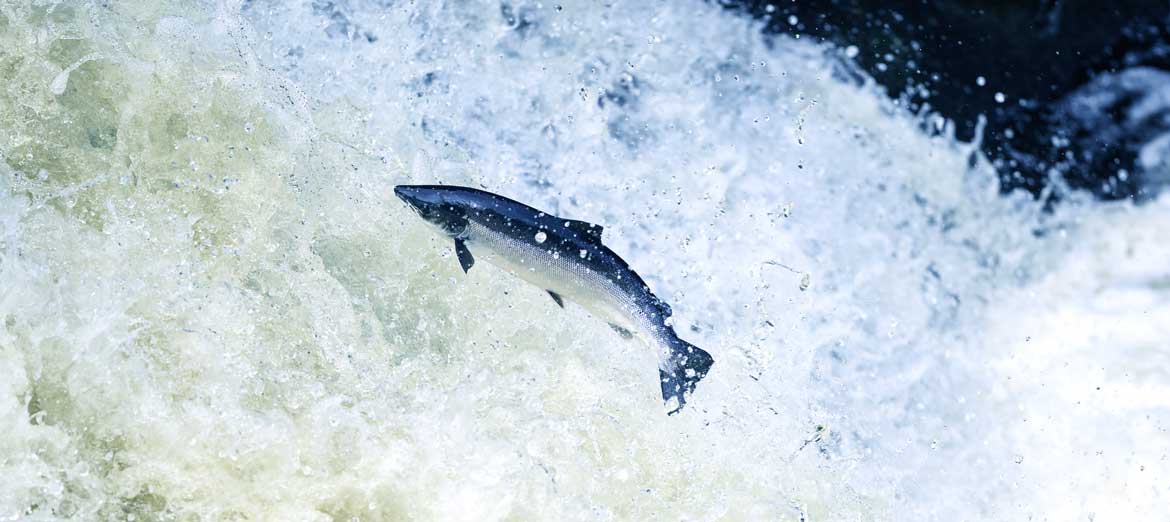This blog is a tribute to Orri Vigfússon, founder and Chairman of North Atlantic Salmon Fund (NASF), who sadly passed away in July. A champion and defender of the ‘King of Fish’, Orri was a visionary and selfless hero who dedicated his life and considerable personal means to reverse the decline in wild Atlantic salmon populations.
For readers not familiar with the Atlantic salmon’s plight, the game-changing discovery in the 1950s and ‘60s of the salmon feeding grounds off the coasts of Greenland and the Faroe Islands led to large numbers of drift net and long line operations being set up which, combined with all forms of estuarial netting, led to the near collapse of salmon populations by the 1980s*.
In the 1970s, Orri observed that Atlantic Salmon stocks on rivers in his native Iceland were vanishing fast, largely due to this commercial exploitation of the species. Coming from a fishing family he knew all too well the risks this posed, not just too fragile ocean and river eco-systems, but also to coastal economies which relied on fishing – he had seen first-hand the devastating collapse of Herring stocks for the same reasons in the 1960s. He resolved to do all he could to stop this unfolding disaster, and set up the NASF with this sole aim.
Being a successful businessman (he was owner and CEO of ICY Vodka), Orri brought an innovative business approach to this environmental conservation issue: He started a dialogue with the nets men who were exploiting the breeding grounds, and soon realized that an economic solution which allowed both fish and fishermen to prosper was needed.
His proposed solution was two-fold:
- Offering financial compensation for not netting the fish;
- Developing alternative sustainable fisheries such as lumpfish or snow crabs (Greenland is now a leading exporter of lumpish caviar).
Over the following 27 years Orri successfully negotiated buyouts of net fisheries in the Faroes, Greenland, Iceland, Ireland, England, Scotland and France. He worked with the fishermen, not against them, and as a result managed to significantly reduce netting across an estimated 85% of the Atlantic salmon habitat.
His trailblazing environmental leadership and negotiating skills have left an indelible mark on the international world of conservation, and arguably saved a species from extinction – yet his success lay in simplicity:
As every good negotiator knows, cooperative - rather than a competitive – approach often brings better results. Understanding what drove the other side helped Orri to achieve his goal by giving the fishermen what they wanted (income) but on his terms (reduction in salmon netting). When negotiating, the elegant negotiator puts themselves in the other side’s shoes to find out what drives their needs, goals and aspirations.
Walking a mile in another man’s shoes, gets you a mile away with a free pair of shoes, but it might also just help you to do a deal that both parties can genuinely net as a win.
Sebastian Bacewicz
*The decline in North Atlantic Salmon stocks was later accelerated by commercial salmon farming which, in its current form (open cages in the sea), is neither sustainable nor environmentally friendly. Anyone interested in finding out more about the negative impact of salmon farming on global wild salmon populations – and the collusion and corruption up to Government level to suppress this information - should watch Twyla Roscovich and Alexandra Morton’s riveting and shocking documentary Salmon Confidential.

